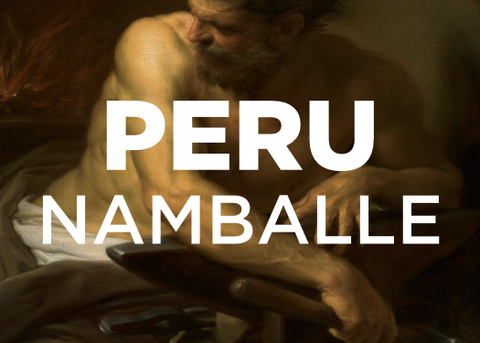
Sumatra Koperasi Gayo Grade 1 Triple Picked
TASTES OF:
Dark Chocolate, Brown Sugar, Tobacco, Plum
COUNTRY: Sumatra, Indonesia
REGION: Gayo
FARM: Koperasi Co-op
FARMER/GROWER: Wagiman and Yasmin Farms
VARIETIES: Gayo 1 and Gayo 2
PROCESSING: Wet Hulled, Giling Basah
ALTITUDE: 1400m
About Sumatra Coffee
Wagiman and Yasmin, two producers in the Aceh Tengah region of Sumatra, share a dedication to organic farming. Their farms, located at around 1450masl, are certified Fairtrade organic and only utilize natural fertilizers such as coffee husks and cow manure to enrich their coffee crops. This ensures soil fertility and longevity.
Ethnic Gayo farmers primarily grow Gayo 1 and Gayo 2 varietals. Although their origins are not well-documented, many believe that Gayo 1 is a strain of the Timor variety, while Gayo 2 shares similar characteristics to Timor and Bourbon. Both are commonly found throughout the highlands of this popular coffee region.
Sumatra coffee production has a long history, extending to the 17th century when the Dutch East India Company imported coffee plants to Indonesia. Sumatra is home to a wide range of tropical flora, fauna, and microclimates. Farms on Sumatra are typically 0.5 to 2.5 hectares scattered across remote regions, connected by a network of collectors, processors, traders, and exporters to the global market.
What is Wet Hulled Coffee Processing (Giling Basah)?
The wet-hulled coffee process, locally known as Giling Basah, is the method of choice in Indonesia due to the humid climate. The wet-hulled process has become synonymous with Indonesian coffees and contributes to its unique cup profile. In the wet-hulled process, coffee cherries are generally depulped at the farm level using hand-cranked machines. The cherries are then fermented overnight to help break down the mucilage, which is subsequently washed off. Afterwards, the coffee is quick-dried to 30-50% moisture and dried to between 11%-13% as it makes its way through the supply chain into an exporter’s mill.




